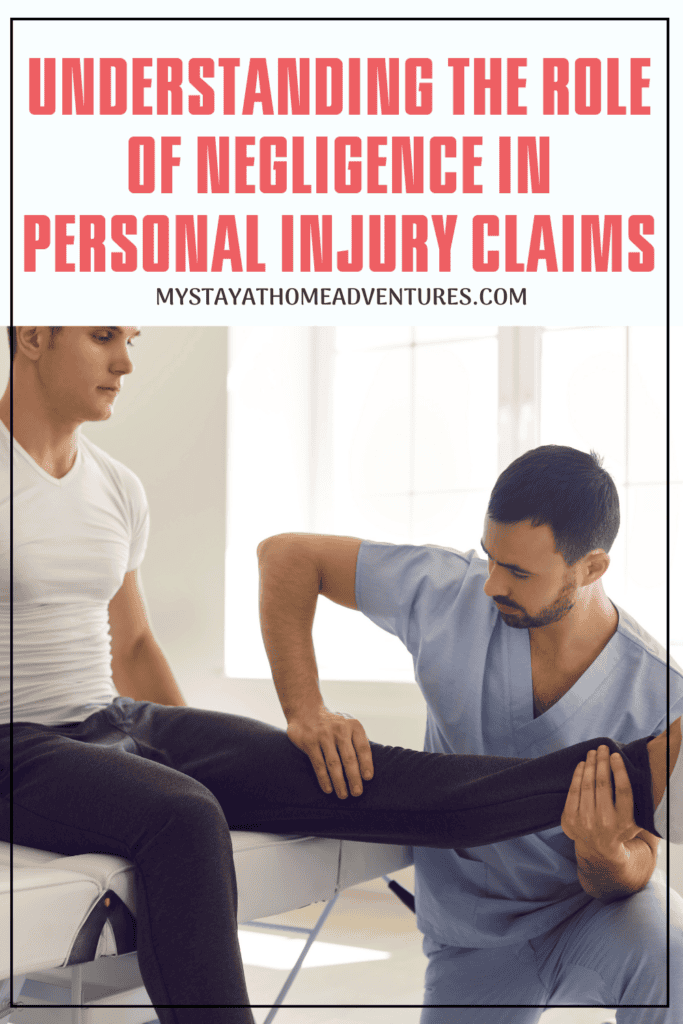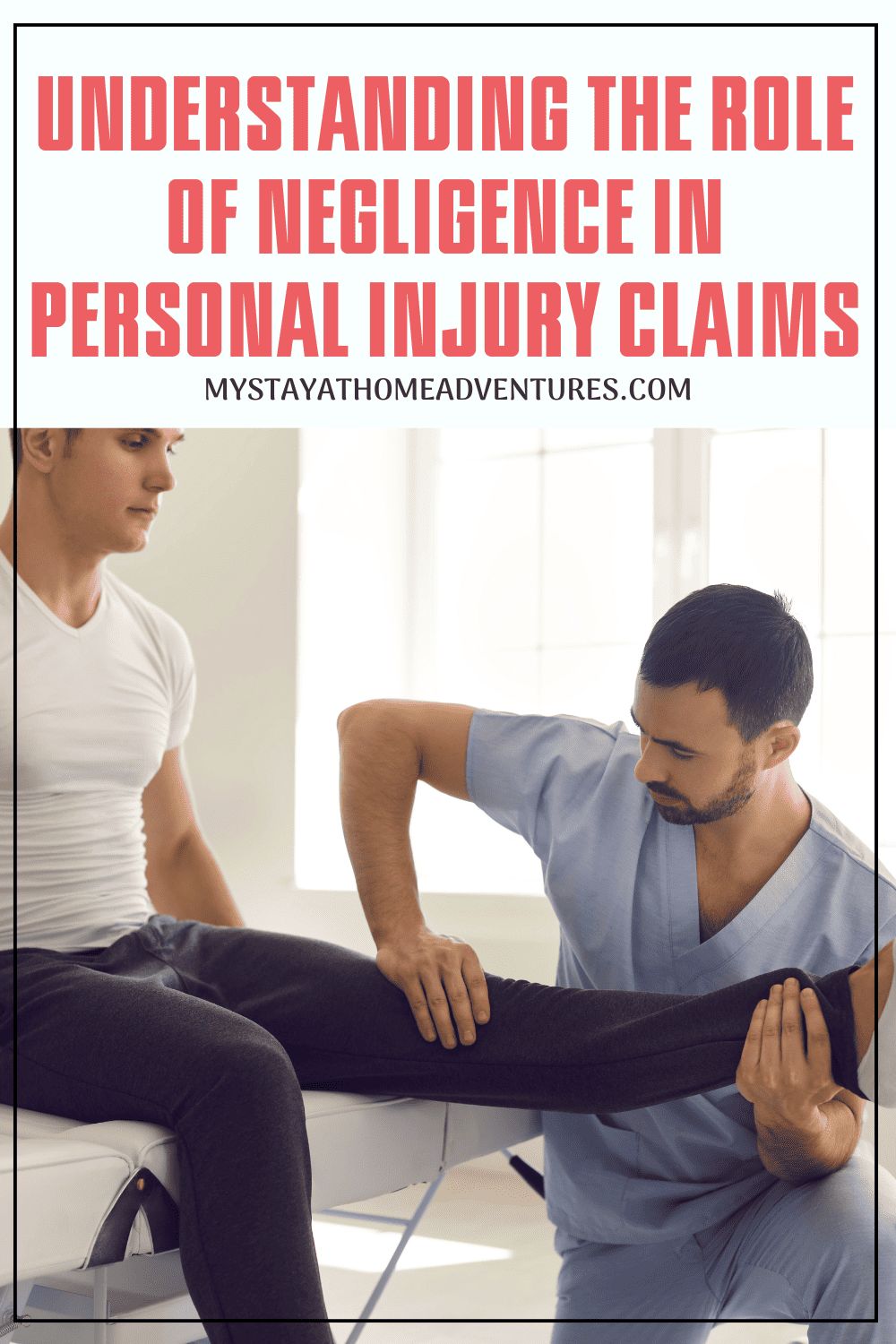Understanding the Role of Negligence in Personal Injury Claims
This post may contain affiliate links which might earn us money. Please read my Disclosure and Privacy policies hereYou’re positive you’re not the at-fault driver. There’s no way you caused the vehicle accident. Since you’re not responsible for causing the accident, filing an insurance claim shouldn’t be a problem. However, there’s a vital aspect that needs addressing.
You must be able to prove negligence. This means understanding the key elements of negligence and it can be a little confusing especially if you’re not familiar with a few legal terms. So, what is negligence and what role does it play in your personal injury claim?

What is Negligence?
Negligence is the same as fault in personal injury law. Basically, claiming someone is negligent is the same as saying they’re at fault for causing the accident. In some situations, an individual has a duty not to cause harm to others.
The duty can apply to anyone from healthcare providers to retail store owners and motor vehicle operators. For example, all motorists owe a duty to others on the road to obey all traffic laws. If a driver ignores traffic laws like speeding and this behavior results in an accident, the motorist not following traffic laws is the negligent party.
Don’t Confuse Recklessness with Negligence
Confusing recklessness with negligence is pretty easy. After all, the two terms have extremely similar definitions. However, in personal injury claims the two terms are distinctly different.
While negligence deals more with an individual’s responsibility not to cause harm to others, this is also known as your duty of care. Recklessness focuses on an individual's behavior or actions. The individual is well aware their behavior may cause harm to others but they simply don’t care. Running a red light can be an example of reckless behavior. If a physician knowingly leaves a sponge behind in a patient after a surgical procedure, this can also be considered reckless behavior.
Can you have both recklessness and negligence in a personal injury claim? Yes, you can, though your claim will probably focus a little more on negligence.
Different Types of Negligence
Negligence isn’t a one-size-fits-all legal term. Typically, negligence falls into one of three categories. Yes, this can impact your personal injury claim. You may be prevented from recovering compensation. Your settlement amount may also be reduced.
- Contributory negligence. A defendant in a personal injury claim may use contributory negligence to try and prevent a plaintiff from recovering damages. The defendant works to prove the plaintiff’s actions or lack thereof are a contributing cause of the accident. While some states do follow contributory negligence guidelines, Nevada isn’t one of them. So, if your accident happens in Las Vegas, you don’t need to worry about contributory negligence affecting your injury claim.
- Comparative negligence. Several states, including Nevada, follow some type of comparative negligence rules. This category is similar to contributory negligence but there’s a big difference. While contributory negligence bars plaintiffs from filing a claim if they’re even partially at fault, you may still be able to recover compensation under comparative negligence rules. Your compensation will be reduced by your percentage of negligence. So, if you’re 50% responsible for causing the accident, comparative negligence rules dictate your settlement amount is reduced by 50%.
The third category is gross negligence and this is usually decided by a civil court judge. Gross negligence applies when an individual’s actions or inactions show a total disregard for others’ safety. Going back to the example of a surgical sponge being left in a patient. This can be considered gross negligence if the surgeon knows there may be a problem but ignores it anyway.

Key Elements of Negligence in Nevada Personal Injury Claims
Regardless of whether you’re filing an accident claim in Nevada or another state, the four key elements of negligence are the same. You must prove all four elements to move forward with a personal injury claim. Typically, the only exception is when you’re filing a strict liability claim against a product manufacturer. In these types of accident claims, negligence is already a given.
Each element of negligence is kind of like a link in a chain. You must prove each link before moving on to the next one. Since the elements build off of each other, it gets a little easier to prove as you move down the chain.
Duty of Care
We briefly mentioned a duty of care and it’s the first element of negligence. Pretty much everyone owes someone a duty of care. As we mentioned earlier, all motorists owe everyone else on the road a duty of care. This means following all traffic laws instead of treating them like suggestions. Your duty of care is essentially to behave in a way that doesn’t place others at risk of injury.
Breach of Duty
You’ve established the defendant owes you a duty of care. Now, it’s time to show they breached their duty. Nevada, like most other states, defines a breach of duty as behavior you wouldn’t expect from a reasonable person. Don’t worry if what you consider reasonable behavior isn’t the general norm.
The law tends to look at averages. So, an average reasonable person will stop at a red light. An unreasonable individual will blow through the red light without worrying about potentially injuring others. Sometimes, proving a breach of duty means bringing in expert testimony.
Cause
Personal injury law doesn’t presume your injuries are caused by the accident. You must prove the defendant’s breach of duty is the direct cause of your damages. Usually, things like the accident report and your medical records are enough to prove this element of negligence.
Damages
This is the final element of negligence and is usually the easiest to prove. You must show your damages like medical expenses are caused by the accident. Once again, your medical records, along with other bills and receipts are usually enough.
Proving Negligence is Essential in Accident Claims
Simply claiming someone else is at fault for your accident isn’t enough if you want to recover compensation. You must show negligence and it can be a little tricky. Sometimes, the best advice is to work with an experienced accident attorney. They can help you meet each element of negligence so you can move forward with your injury claim.








